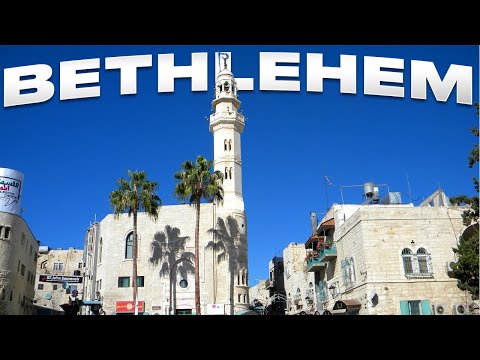
Nestled in the rolling hills of the West Bank, Bethlehem is a city that captivates visitors with its profound historical significance and vibrant cultural tapestry. Known worldwide as the birthplace of Jesus Christ, this Palestinian city offers much more than its biblical heritage, presenting a mosaic of sights, sounds, and tastes that reflect the rich history and resilience of its people.
### Historical Significance
Bethlehem’s global fame is primarily rooted in its biblical history. It is home to the Church of the Nativity, a UNESCO World Heritage site believed to be located at the birthplace of Jesus. This ancient basilica, originally commissioned by Emperor Constantine in the 4th century AD and rebuilt by Justinian in the 6th century, remains a focal point for Christian pilgrims from around the world. The church’s grotto, marked by a silver star, is a poignant site for visitors regardless of their religious beliefs.
Adjacent to the Church of the Nativity is Manger Square, which serves as a meeting place for locals and tourists alike. The square buzzes with energy during Christmas celebrations and is flanked by other significant religious structures including St. Catherine’s Church and the Mosque of Omar.
### Cultural Experiences
Bethlehem’s cultural scene provides a deep dive into Palestinian life. The city’s markets are vibrant; filled with artisans selling olive wood carvings, embroidered textiles, and handmade ceramics — all traditional Palestinian crafts. The aroma of freshly baked bread from local bakeries blends with fragrant spices sold at every corner.
The city also hosts numerous cultural institutions like The Bethlehem Icon Centre where visitors can learn about this ancient artistic tradition that continues to thrive in Palestine. Additionally, art lovers can explore contemporary Palestinian art at The Walled Off Hotel; an establishment founded by Banksy that features politically charged artworks alongside breathtaking views of the separation barrier.
### Gastronomic Delights
Palestinian cuisine is celebrated for its diverse flavors influenced by various civilizations over millennia. In Bethlehem, you can savor dishes like musakhan (sumac-spiced chicken served on taboon bread), maqluba (an upside-down rice dish with vegetables and meat), and knafeh (a cheese pastry soaked in sweet syrup). Local restaurants also serve fresh hummus paired with falafel or grilled meats that capture the essence of Middle Eastern flavors.
### Modern Challenges
Despite its historic allure and cultural richness, Bethlehem faces modern challenges as part of an area under occupation since 1967 following Six-Day War. Mobility restrictions imposed by Israeli checkpoints significantly affect daily life here as well as tourism—a vital component of Bethlehem’s economy. Furthermore, “The Wall,” a towering concrete barrier built by Israel citing security concerns but considered illegal under international law according to an advisory opinion issued by International Court Of Justice in 2004—casts a shadow both literally and metaphorically over parts of Bethlehem.
Despite these difficulties— or perhaps because they highlight resilience—Bethlehem continues to draw visitors keen on understanding more complex geopolitical narratives firsthand while experiencing local hospitality.
### Visiting Responsibly
When planning your visit to Bethlehem it’s important to travel responsibly understanding context you’re stepping into especially given ongoing Israeli-Palestinian conflict Understanding political tensions engaging local guides ensuring tourism dollars benefit community directly help ensure your visit contributes positively area’s ecosystem ensuring support locals while learning about their heritage culture firsthand
In conclusion traveling through Bethlehem isn’t just walk through New Testament rather it’s journey across centuries cultures where each stone tells story even today This historic yet lively city invites travelers look beyond conventional pilgrimage discover heart soul Palestine through sensory riches resilient spirit its people
